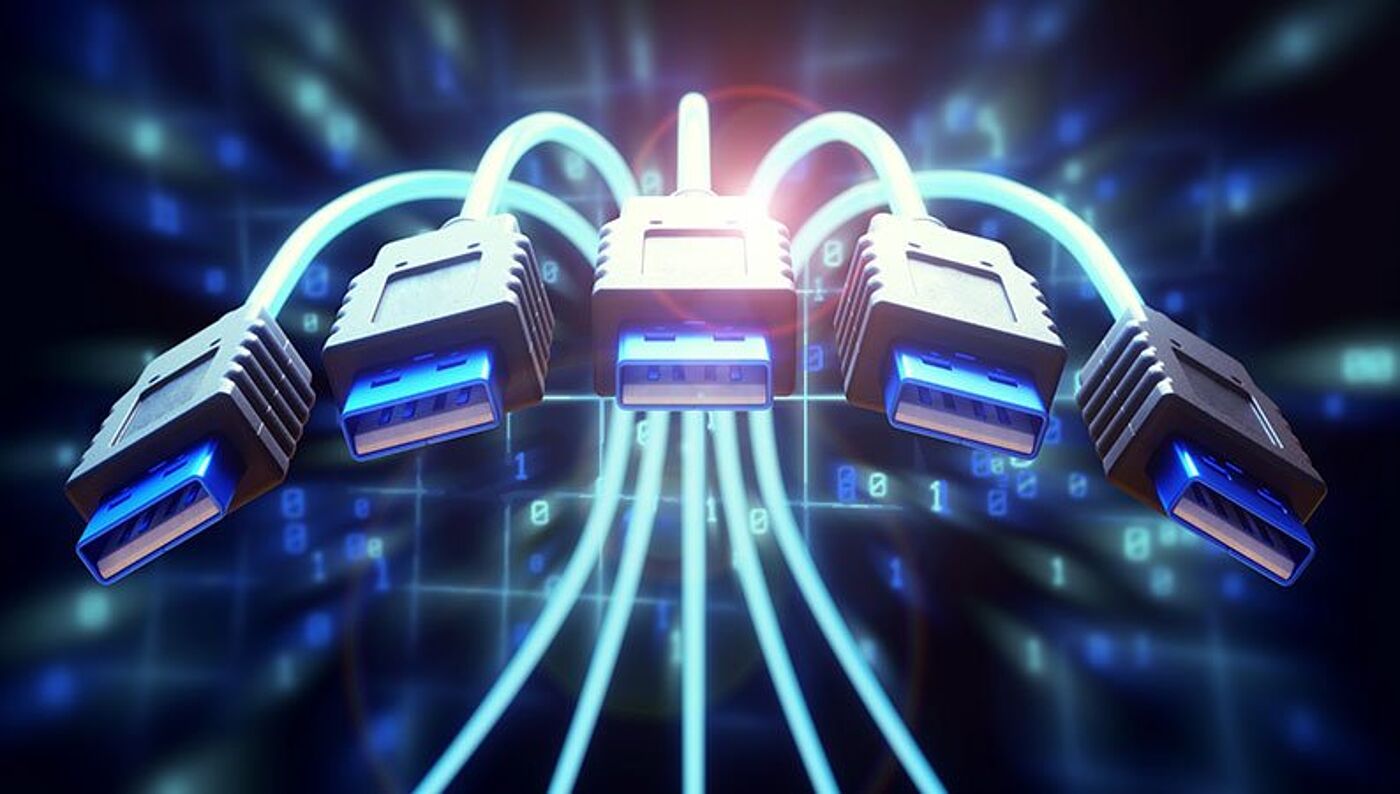
Everyday IP: Who owns the internet?
In this day and age, so much of our professional and personal life exists on the internet. This has become especially true over the last half-dozen years — and with much of the world at home during the COVID-19 pandemic, the internet was the conduit through which we stayed connected to family, friends and colleagues.
It is fascinating — and more than a little bit complicated — to think about a system as vast and multifaceted as the internet from an Intellectual Property (IP) perspective. We must first examine some critical points of the internet's early history and take a look at its present-day makeup to answer any question regarding "ownership."
Who invented the internet?
The broad consensus regarding the creation of the internet is that it began with groundbreaking work by several scientists throughout the 1960s and 1970s. Paul Baran proposed a telecommunications system with redundant links while working for the Rand Corporation in 1960, with the idea that it could function even during wartime. In 1965, Donald Davies added the notion of data being broken into small pieces and transmitted back and forth simultaneously — creating the foundation of the vital internet technology we now know as "packet switching."

The United States Department of Defense initiative called ARPANET, named for the Advanced Research Projects Agency (ARPA) that developed it, drew from these concepts when connecting college networks in 1969. Across the Atlantic, in France, computer scientist Louis Pouzin oversaw the creation of a data network known as CYCLADES in 1971. Over the next several years, Pouzin's system was linked to facilities in Italy and the United Kingdom. The Defense Advanced Research Projects Agency (DARPA) member Robert Kahn and Stanford University assistant professor Vinton Cerf adopted certain aspects of Pouzin's work to create the Transmission Control Protocol and Internet Protocol (TCP/IP) in 1974.
If any particular network must be considered the foundation of the internet as we know it today, TCP/IP is as good a candidate for that role as can be. Unfortunately, here we also see the first instance where proper recognition for an internet-related idea is not enjoyed. Although Pouzin was always cited as an inspiration by Kahn and Cerf, including in their landmark paper explaining TCP/IP, his role would not become well known until the 2010s. Even now, his name is somewhat obscure.

The key development that effectively cemented the modern internet and brought it to the general public was the World Wide Web, created by British scientist Tim Berners-Lee in 1989 while working at the European Organization for Nuclear Research (CERN). While Berners-Lee also created the first web browser around this time, it was Marc Andreessen who developed and released the open-source Mosaic browser in 1993. Later known as Netscape, it was well-liked by computer novices for its ease of use.
At this point, we must mention that though the Web and the internet are sometimes interchangeably used terms, they are not synonymous. As the channel through which users access their favorite websites, the Web represents a massive part of the internet, but there is much more out there. For that matter, the development of mobile devices and the networks designed for their traffic, Wi-Fi and the "cloud" would further galvanize internet expansion.
So who owns the internet?
In the strictest sense of that term? No one. No single individual or organization can claim either ownership or IP authorship of the entire internet — it is simply too large and multifaceted.
From an IP perspective, some could attempt to claim rights to certain aspects of the internet if they were so inclined. Berners-Lee is one such person, as the Web is clearly his invention: It is novel, involves an inventive step and a person can perform its processes with ordinary skill in the art. But he deliberately forsook commercial control of the Web, releasing the source code for free not long after he had announced its creation. Kahn and Cerf, creators of TCP/IP, were similarly disinclined to hold exclusive rights to their invention.
IP battlegrounds of the internet
While the internet cannot itself be owned, large swaths of it can be controlled. Tier 1 network providers like AT&T, Deutsche Telekom, Orange and GTT can reach every corner of the internet due to their sheer size and peering agreements with their counterparts. Thus they effectively control the global network by parceling out internet access to internet service providers (ISPs) who then deliver it to consumers. None of these telecom giants could claim patent rights over the internet itself, but any hardware they create to facilitate their operations would be patentable — and licensing those patents would be lucrative.

Along similar lines, Google's control of at least 90% of all search traffic did not come overnight. It required the invention and patenting of thousands of technologies and algorithms. Facebook also slowly but surely asserted near-total dominance of the social media field. This has led more than a few world leaders to call Google and Facebook monopolies, but they are not globally regulated as such, notwithstanding some hefty claims of anti-competitive practice. The EU's $10 billion fine levied in 2020 is the biggest antitrust penalty either company has faced thus far. Currently, Google is embroiled in another EU antitrust lawsuit and Facebook has been targeted in a joint UK-EU action for alleged violations of unfair competition law.
In recent years, one of the most dynamic areas of internet-related IP rights has involved patents for technologies associated with the internet of things (IoT). This concept describes the plethora of electronic devices from coffee machines to televisions that can now communicate with one another over the internet. The interconnectivity facilitated by the IoT is of great use in the professional services, finance, health care, manufacturing and industrial sectors, and the European Patent Office (EPO) estimated that there will be up to 30 billion IoT-connected devices throughout the world by 2025. But while some aspects of IoT technology, such as the sensors and other hardware, will not be difficult to patent, the related software is a much different story. This complication chiefly applies in the EU, but potentially in other jurisdictions as well.
Innovators looking to market new IoT tech or other internet-related inventions will benefit greatly from the counsel and support that Dennemeyer can provide worldwide. We pride ourselves on our embrace of technology to facilitate the services we offer, as well as our extensive experience supporting inventors and organizations working at the vanguard of internet technology.
Filed in

International LEGO Day celebrates the creativity of play and the patents that make the world's most famous toy possible. Here is how IP keeps LEGO colorful in more ways than one.



